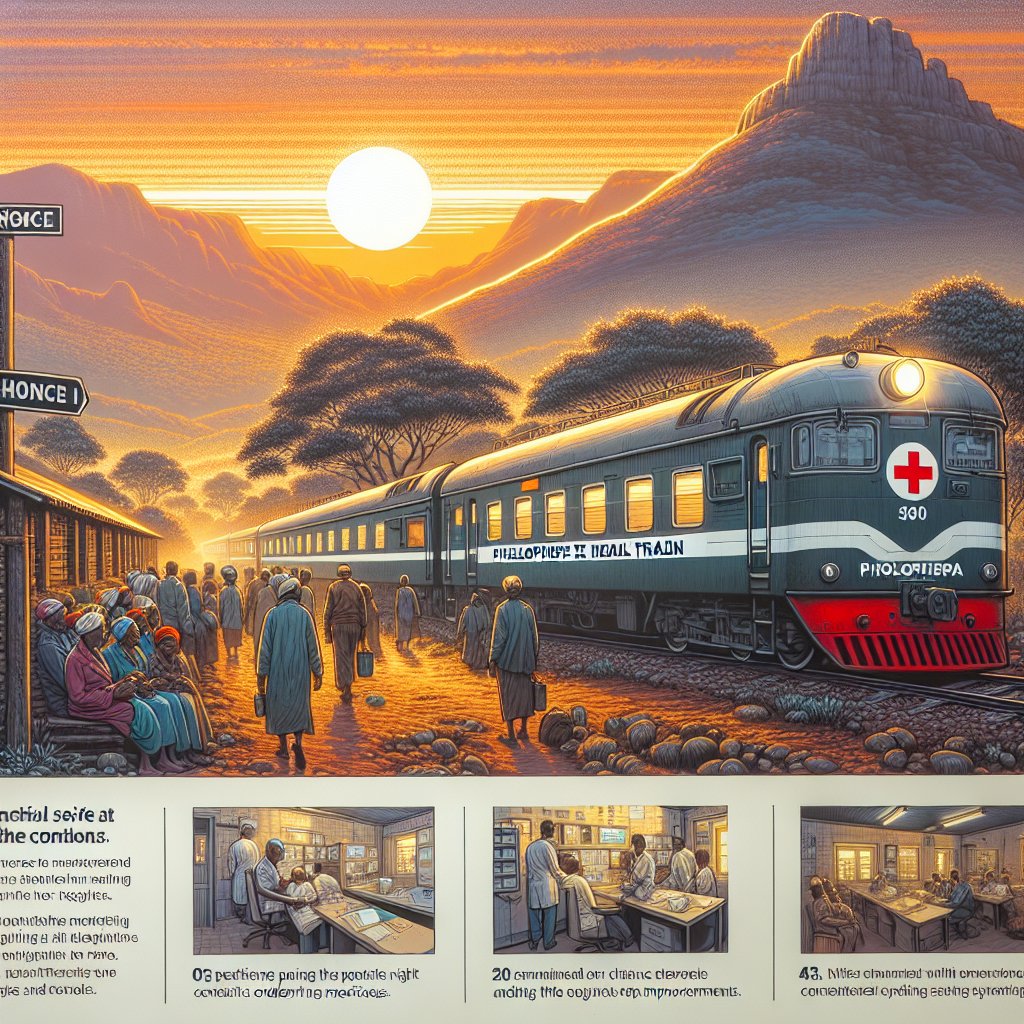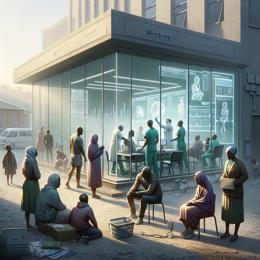Image created with AI
Phelophepa Train's Resolute Journey Continues Amid Challenges in the Eastern Cape
As the sun rises over eQonce, the Phelophepa II medical health train prepares to extend its compassionate reach to the local residents. For two weeks, this beacon of hope, an initiative by Transnet, stood at Mount Ruth Station in Mdantsane near East London, serving more than 2000 patients—an impressive figure surpassing its minimum target of 1500 individuals, confirmed by Acting train manager, Dr. Thabiso Manamela.
Phelophepa's journey was not without its trials. Cable theft, an issue that plagues many, caused an unforeseen delay at a previous station. Yet, the dedicated crew, embracing a 'show must go on' attitude, lengthened their hours and worked through the weekend to compensate for lost time. It's an unwavering commitment that reflects the train's 30 years of service—an anniversary it commemorates as it continues to offer healthcare to those in need.
The partnership with the Buffalo City Municipality and the Department of Health has been pivotal in enabling Phelophepa to deliver its essential services, some at nominal costs. Health Department spokesperson, Sizwe Kupelo, expressed the value of their ongoing partnership with Phelophepa and reiterated their welcome for the much-needed health services.
However, not all is well on the eastern front. Phiwokuhle Mhlongo, the health clinic manager with eight years of service aboard the train, voiced concerns about the state of healthcare in the Eastern Cape. The turnout of patients, sometimes spending nights outside the train station, suggests a disturbing narrative—one where adequate healthcare seems a distant reality for many.
The Eastern Cape's healthcare challenges are manifold. Severe malnutrition stands out among the concerns identified, an echo of the distress shared by the South African Human Rights Commission. Phelophepa's healthcare providers note profound shortcomings, with patients from underprivileged areas like Swartkops reporting a frequent and worrying default to prescribing painkillers for a range of health issues—raising suspicions of medication shortages.
Contrastingly, Kupelo contests such claims, maintaining that any medicine shortages are promptly addressed. He speaks of improvements in clinics, drug availability, and an enhanced ordering system designed to keep facilities stocked.
As Phelophepa prepares to resume its much-anticipated services from February 19 to March 1, before heading to its next destination in Bloemfontein, Kupelo urges partner organizations to relay their observations to the department, fostering engagement and service enhancement. While acknowledging the existence of gaps, he calls for specificity over sweeping generalizations in critiquing the system.
The Phelophepa health train has long been a lifeline for many, and its 30th anniversary does more than highlight a milestone. It underscores a commitment to serve, to heal, and to bridge the healthcare divide in South Africa.










